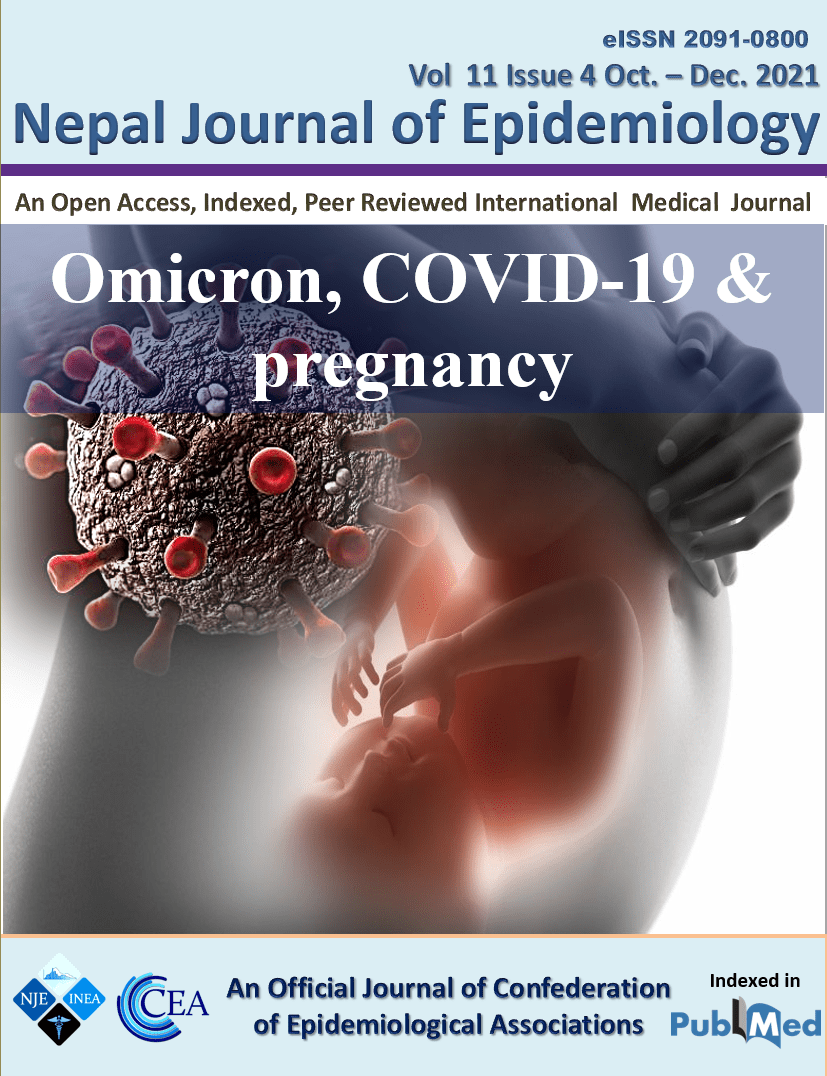COVID-19 pandemic and suicides in Nepal: Way forward for prevention
DOI:
https://doi.org/10.3126/nje.v11i4.41116Keywords:
Asia, Coronavirus Infections, SARS-CoV-2, Self-Injurious Behavior, Social Problems, Suicidal IdeationAbstract
The SARS-CoV-2 pandemic has firmly rooted itself within our countries, communities, homes and now everyday lives. The impact of this global pandemic is immeasurable as it is catastrophic in nature and involves both a human and financial loss. Suicide and self-harm (SH) are both a serious public health and social issue. It is however preventable via the use of timely, evidence-based and many times low-cost interventions and therapies. The current situation depicted Nepal shows a true indicator of the mental health of the nation, as a precipitating factor (i.e., the extreme stress of COVID-19 and the lockdown) has exposed the submerged “ice-berg” phenomenon of disease.
It is evident that COVID-19 and the lockdown had a massively negative effect on the mental health of the population in Nepal. The increased rates of suicide and self-harm also simultaneously exposed the great pre-existing fragility of the mental health of the nation. It is therefore vital that both Nepal and other countries alike take cognizance of the fact that extra support and preventative measures need to be introduced during this difficult period and that further national programs must be employed to best aid the mental health of their fellow countrymen.
Downloads
Downloads
Published
How to Cite
Issue
Section
License
Copyright (c) 2021 CEA & INEA

This work is licensed under a Creative Commons Attribution 4.0 International License.
- Upon acceptance Copyright on any research article is transferred in full to the Confederation of Epidemiological Associations (CEA) and International Nepal Epidemiological Association (INEA). The copyright transfer includes the right to reproduce and distribute the article in any form of reproduction (printing, electronic media or any other form).
- Articles in the Nepal Journal of Epidemiology are Open Access articles published under the Creative Commons CC BY License (https://creativecommons.org/licenses/by/4.0/)
- This license permits use, distribution and reproduction in any medium, provided the original work is properly cited.




